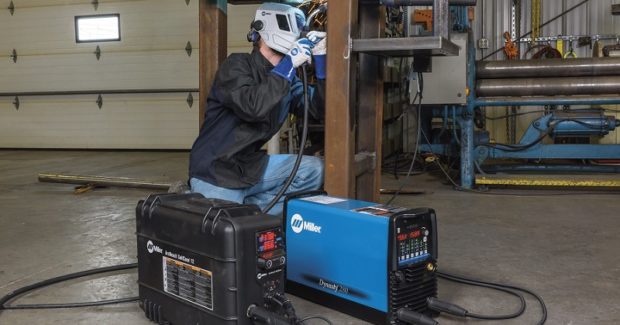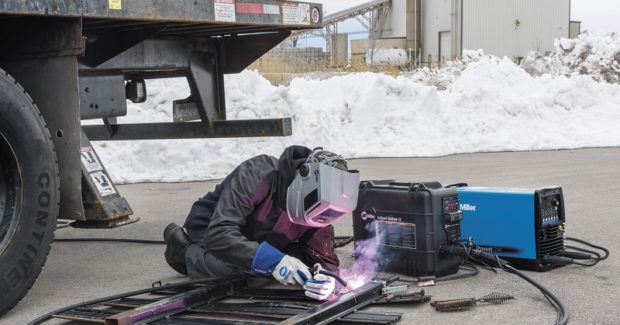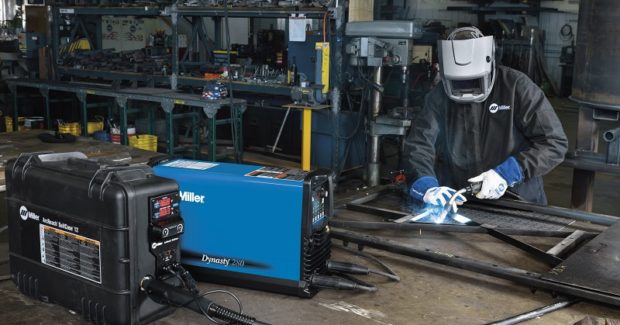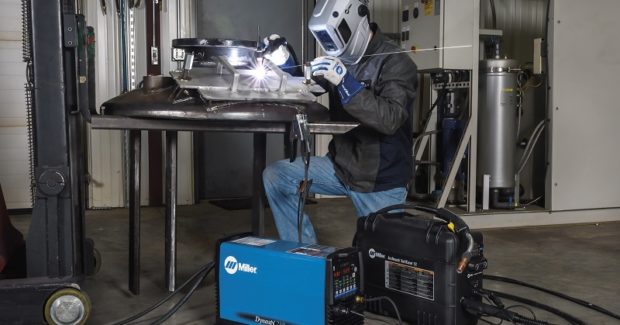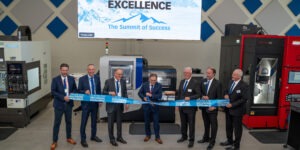Gain Advanced Capabilities with a Versatile Multiprocess Welder
The need to weld many different material types and use different welding processes is increasing on the jobsite and in the shop. The ability to weld most any material – anywhere – with one lightweight, portable welding system that delivers industrial-level output can provide significant benefits for productivity, efficiency, and profitability.
Posted: May 20, 2018
Many welding applications require ultimate versatility in a welding power source: one machine that can weld any material using any process. From shipbuilding to general fabrication, a wide range of industries are increasingly using different material types, creating a need to change the welding process depending on the application and material. You might go from flux-cored arc welding (FCAW) ½ in thick carbon steel to TIG (GTAW) welding 8 ga aluminum in the same workday. Choosing a multiprocess welding power source that delivers advanced capabilities and the greatest versatility can help you tackle whatever jobs you encounter.
A NEW MULTIPROCESS WELDER
While there are many multiprocess welders on the market, these options typically limit welding capabilities to DC processes only. These include stick (SMAW) welding, MIG (GMAW) welding and DC TIG with lift-arc start, without the capability for AC TIG or non-contact, high-frequency arc starts. A second welding power supply would be needed to TIG weld aluminum. Investing in separate machines for these processes can hinder efficiency in addition to increasing the number of power sources taking up space on the jobsite or in the shop. In a shipyard, for example, this means having a dedicated welding power source for AC/DC constant current (CC) TIG and another DC constant voltage (CV) welding power source for MIG or flux-cored welding. Switching from TIG to MIG on an aluminum welding project would require finding the other welding power source and moving it to the area of the ship where the work is being performed, increasing labor time and risks for work-related injury.
The newest welding power sources can answer these challenges. For example, our Dynasty® 280 DX Multiprocess welder provides capabilities for stick, MIG, TIG and AC TIG to weld aluminum. It also offers advanced TIG welding capabilities, including non-contact, high-frequency arc starts and pulsed TIG, along with output power up to 250 amps at 60 percent duty cycle. This multiprocess versatility helps you be prepared for any job with just one machine, so there’s no need to transport multiple welding power sources to every job or spend downtime waiting for the necessary welding equipment to arrive.
MOVE IT TO THE WORK
Portability and space savings are also critical issues on many jobsites. Lightweight welding equipment that is easy for one person to move without the assistance of a fork truck or crane helps improve productivity, efficiency and safety. The new Dynasty is compact and lightweight at 55 lb, so it can be moved by one person and can fit through even narrow passages to go where the work is. Because the machine can be easily moved to the weld, it eliminates the use of long secondary weld cables that contribute to extra labor costs in cable management, add clutter to a jobsite and increase trip hazards. These space saving benefits also translate to shop environments, welding classrooms and labs where floor space is often at a premium.
Educators who teach with multiple types of welding power sources may be challenged to find room for all the classroom supplies they need. Having one welding power source and a suitcase feeder that can handle nearly any welding project saves valuable floor space that can then be used for other important tools, or to increase the number of welding booths within the facility. Using a fleet of the same multiprocess machines can also help reduce training time for welding students or beginning welders. An easy-to-use, uniform interface helps welders become proficient quickly so that they can be on the job faster, making quality welds.
ADVANCED TIG OPTIONS
Corrosion-resistant materials, like aluminum and stainless steel, are becoming more commonly used in many industries. These metals typically require different welding techniques than those used on materials like mild steel. Selecting a welding power source with advanced TIG capabilities, such as high-frequency arc starts, AC TIG and pulsed TIG, can help welders produce high quality welds on aluminum and other corrosion-resistant metals, like stainless steel. Proper heat input is a critical factor in successfully welding these materials, and the pulsed TIG process can provide lower heat input. Non-contact, high-frequency arc starting offers benefits on thinner, high-purity materials. Because these specialty base materials are typically more expensive, the metal is often made thinner as a way to control costs – making the strength and purity of the weld even more critical, since impurities can reduce weld strength. High-frequency arc starting allows for non-contact arc initiation, providing more consistent starts and greater reliability.
A VERSATILE SOLUTION
On the jobsite or in the shop, there is often a need to weld many different material types and use different welding processes. Consider an option that provides these capabilities in one lightweight, portable welding system that delivers industrial-level output. The ability to weld most any material – anywhere – with one welding power source can provide significant benefits for productivity and efficiency.





